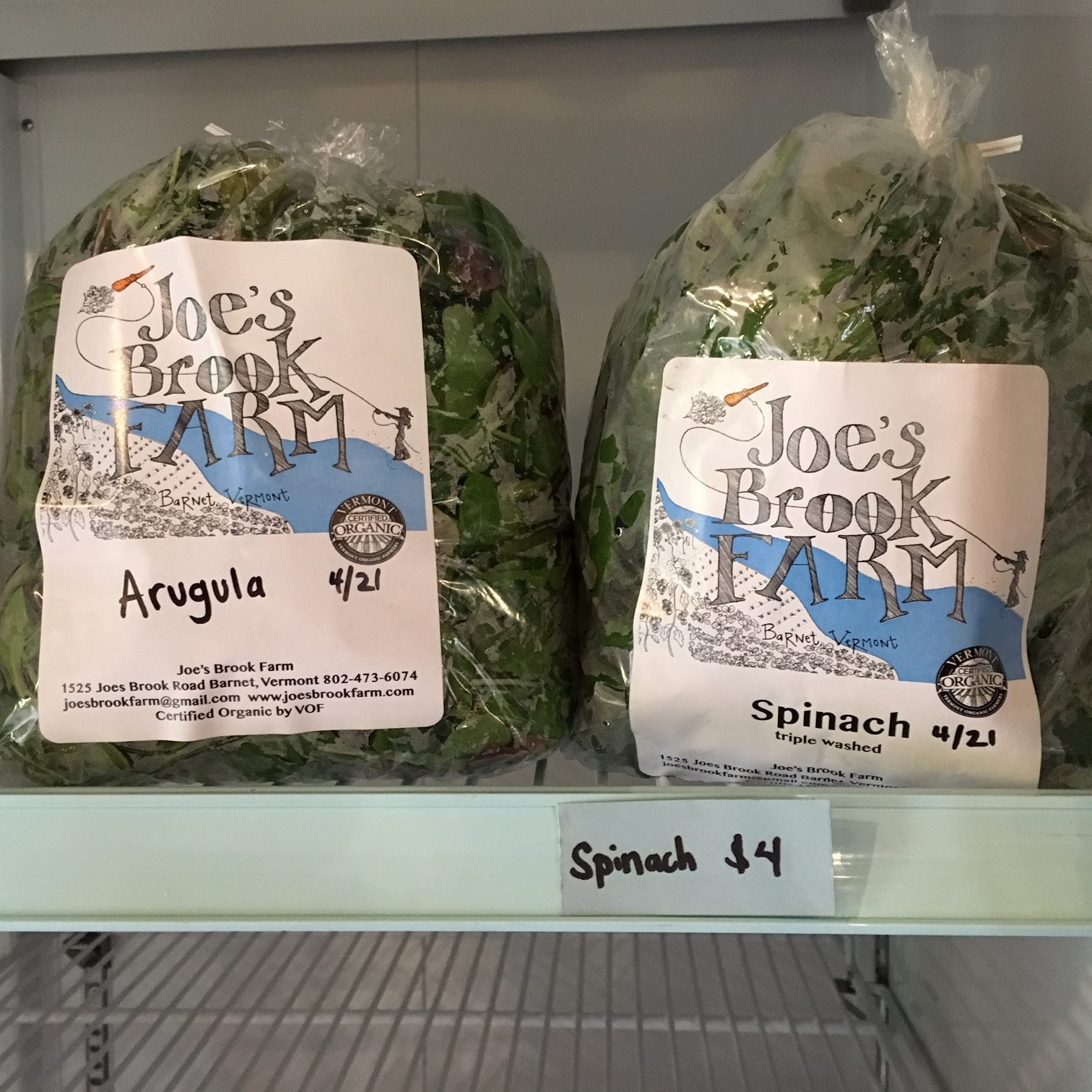
By Ollie Cultrara, Vermont Agency of Agriculture, Food & Markets
“Small farmers in New England and Vermont are well-positioned to lead the way when it comes to produce safety,” according to farmer Eric Skovsted of Joe’s Brook Farm in Barnet, Vermont – especially with the help of grants that allow farms to improve their standards. Joe’s Brook Farm was awarded a Produce Safety Improvement Grant of $5,000 in 2019 to purchase a rinse conveyor that can clean both vegetables and harvest bins.
In an interview with the Vermont Produce Program, farm owner Eric Skovsted reported that the grant project:
- increased the efficiency and effectiveness of the wash-pack process;
- increased production capacity;
- improved employee satisfaction and retention; and
- provided a collective learning opportunity for multiple Vermont vegetable farms.
Vermont Produce Program: Tell us about Joe’s Brook Farm
Eric: Joe’s Brook Farm is a 20-acre vegetable and fruit farm. Our sales are split between direct-to-consumer – farmers markets, CSA, farm stand – and wholesale to a range of grocery stores, co-ops, and institutions.
We got started 11 years ago with one tomato greenhouse, a garden, and one farmer’s market. I worked off-farm full time, and my wife Mary was full time on the farm from the start. We’ve been able to grow with our diverse markets over the years. For the last five years, I’ve been full-time on the farm.
How do you manage produce safety on your farm?
We have the same risks as any vegetable farm. We mitigate them through a variety of technologies and practices, which are encapsulated in our CAPS [Community Accreditation for Produce Safety] certification. Keeping our produce safe and clean includes considerations such as:
- getting our water tested;
- using Sanidate, an organic-approved sanitizer, in all of our wash water;
- maintaining cold temperatures;
- keeping [animals] out of our pack area; and
- using irrigation appropriately.
Can you describe your Produce Safety Improvement Grant project?
With the grant we purchased a rinse conveyor. It’s a conveyor belt with a stainless steel box on top of it. There are two pumps: one is low-pressure, high-volume, and the other is high-pressure, low-volume. The machine is filled with water, then hooked up to the water supply line. We have another device that injects Sanidate [sanitizer] into the water, which helps the vegetables keep better. A person puts product in at one end and it comes out [rinsed clean] at the other.
We use it for winter squashes, melons, kale, chard, carrots, beets, lettuce, cucumbers. [The produce does] not come in contact with any brushes; it is only scrubbed by water pressure. And when we’re done [washing produce], we send our containers through and it pressure-washes them.
How did this grant affect your wash-pack operation?
It’s increased our production tremendously and really changes what kind of crops we’re able to do profitably.
Prior to the project, a big carrot pick for us would have been 100 bunches of carrots – and someone would have to stand there with a hose for two to three hours. With this machine, we’re able to clean and cool 200 bunches of beets, 400 bunches of carrots with two people in an hour’s time.
Was it easy to use right away?
There is a big learning curve. When we first turned it on, we shredded so many carrot tops with the high pressure! But we’ve figured out how to adjust it over time, and we’ve really been able to maximize what we get out of the machine as a result.
There was a lot of support connected to the grant through UVM Extension. UVM Extension put together a video conference call with several farmers and the manufacturer to help us troubleshoot.
How else did the grant impact your farm?
It has increased the quality of the pack-out experience for our employees. Having equipment like this – versus having to stand there with a scrub brush or a hose – helps us retain employees.
Grants also helped other farmers get this same piece of equipment. Climbing the learning curve is a lot quicker when we work together and share. So a grant program like this puts a lot farmers together going in the same direction. It didn’t just push us forward, it pushed a lot of us forward.
How does produce safety fit into your vision for the future of your farm?
Maintaining quality is how we keep our customers. Vegetables are supposed to be good for you – so making sure that’s always the case is really important. Produce safety is one of the most important things on our farm, and it will continue to be.
To learn more about the Produce Safety Improvement Grant program visit agriculture.vermont.gov/produceprogram. To get in touch with the Vermont Produce Program, email AGR.FSMA@vermont.gov or call (802) 461-5128.

